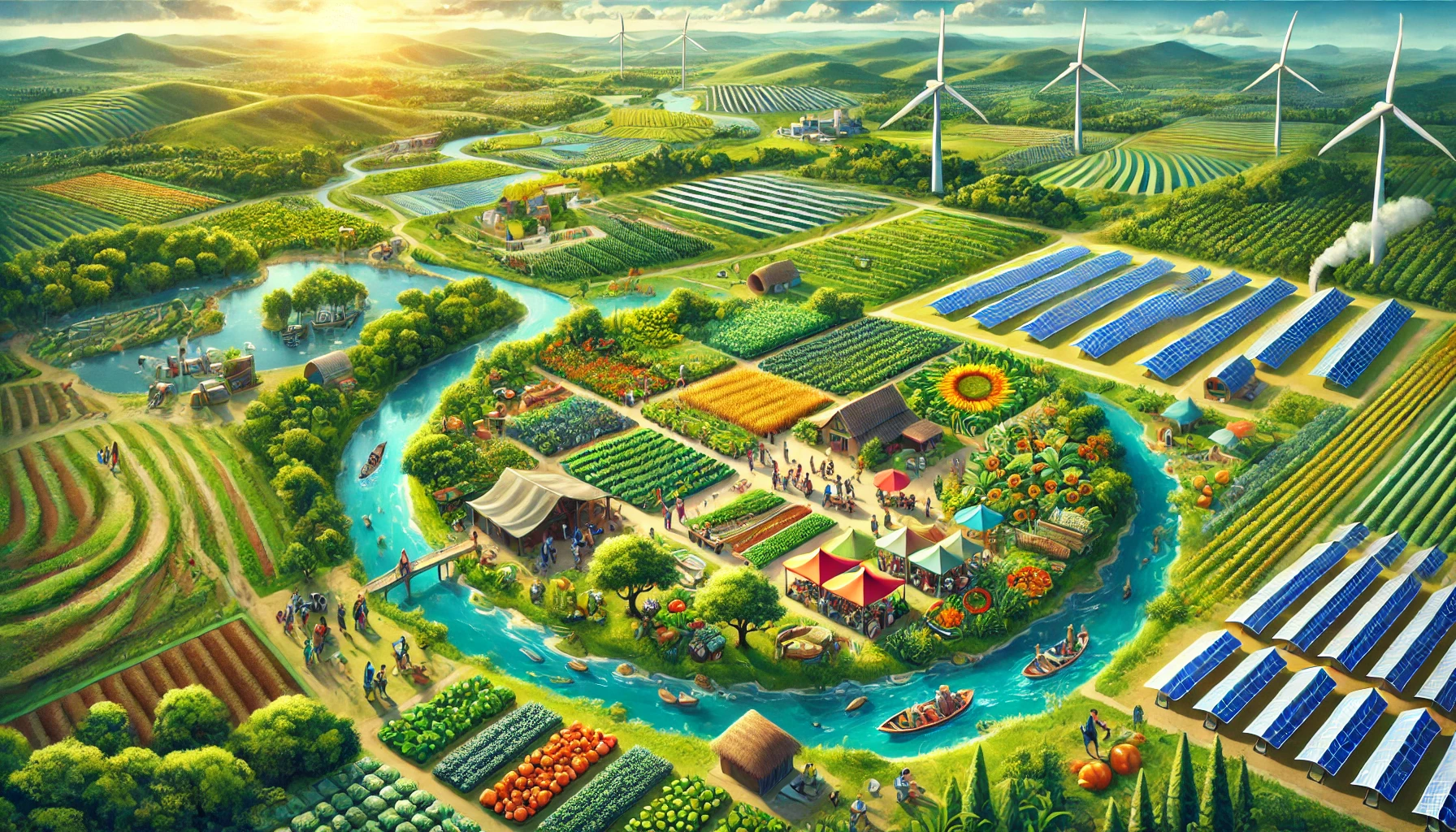Reshaping Food Systems for Sustainability and Resilience in a Changing World
The UNDP Paper calls for a transformative approach to global food systems, emphasizing sustainability, inclusivity, and resilience to address food insecurity, environmental degradation, and economic disparities. It highlights the need for systemic changes in governance, value chains, and sustainable finance to create equitable and resilient food systems.

The United Nations Development Programme (UNDP) has published comprehensive research that underscores the urgent need for a global transformation of food systems. Produced by a cross-disciplinary team from several UNDP hubs and centers, including the Crisis Bureau, Climate Hub, Nature Hub, Nairobi Resilience Centre, Governance Hub, and Sustainable Finance Hub, the paper reflects the complexity of food systems and the requirement for a multidimensional approach. The current state of global food systems is unsustainable, with significant negative impacts on the environment, health, and socio-economic factors. The paper argues that these systems are not only failing to meet the needs of the world's population but are also contributing to widespread food insecurity, which affects 281.6 million people globally, with conflict and fragile contexts exacerbating the situation. The UNDP emphasizes that the time for action is now, calling for holistic solutions that address both immediate crises and long-term structural weaknesses.
A Global Food Crisis Exacerbated by Conflict and Climate Change
The Paper identifies the multiple drivers of the food systems crisis, including climate change, economic disparities, and conflicts, as well as systemic inefficiencies within food value chains. Events such as the war in Ukraine, the lingering effects of the COVID-19 pandemic, and extreme weather events like droughts and floods have disrupted food production and distribution, driving up prices and exacerbating food insecurity, particularly in vulnerable regions. The paper highlights how the current food systems are deeply interconnected with various sectors, and their failure has cascading impacts on health, environmental sustainability, and economic development. The urgency of addressing these issues is heightened by the role of food systems in exacerbating social inequality, with small-scale food producers and low-income consumers bearing the brunt of the crisis.
Transforming Food Governance for Resilient Systems
UNDP proposes a four-dimensional approach to transform these systems. The first dimension focuses on improving governance, policies, and multi-stakeholder collaboration. Effective governance is key to addressing power imbalances and ensuring that food systems are inclusive and resilient. By fostering dialogue among global actors, UNDP aims to break down the siloed approaches that have hindered progress in food security, instead promoting integrated, systemic solutions. The Paper stresses that addressing the underlying governance issues will enable the transformation of food systems to better serve both people and the planet. The second dimension targets the structural drivers of unsustainable food systems, such as poverty, inequality, gender disparities, health challenges, environmental degradation, and unsustainable energy use. Each of these drivers contributes to the overall fragility of food systems, and addressing them is crucial for building resilience. UNDP draws on its experience in supporting inclusive growth and sustainable development to propose interventions that focus on improving access to land, water, and credit for small-scale producers, promoting gender equality in food production, and transitioning to sustainable agricultural practices like agroecology.
Redesigning Power Dynamics in Food Value Chains
The third dimension of the transformation focuses on realigning power within food value chains. Currently, these chains are dominated by a few powerful actors who control the majority of profits, leaving small-scale farmers and other vulnerable stakeholders with little reward for their labor and risk-taking. The Paper advocates for a more equitable distribution of power and profits along the food value chain, supporting governments to diversify food production, promote sustainable agriculture and fisheries, and strengthen local food systems. By shortening supply chains and encouraging the development of traditional and territorial markets, UNDP aims to empower small-scale producers and ensure that food systems are more resilient to global shocks. This also includes promoting circular and resilient food value chains that minimize waste and environmental impact.
The Critical Role of Sustainable Finance
The fourth dimension emphasizes the importance of sustainable finance in driving food systems transformation. UNDP argues that without adequate financial resources, meaningful change will not be possible. The Paper calls for a reshaping of the global financial architecture to support sustainable food systems, advocating for the redirection of subsidies and financial incentives towards sustainable practices such as agroecology. Additionally, the paper highlights the need for equitable access to finance for local stakeholders, particularly in developing countries, to empower communities to make decisions about their food systems. This includes promoting investment models that balance long-term sustainability with short-term profitability and ensuring that the private sector plays a key role in supporting food systems transformation.
A Call to Action for Sustainable and Inclusive Food Systems
The UNDP Paper calls for immediate and coordinated action to transform global food systems into ones that are sustainable, inclusive, and resilient. It emphasizes that the transformation requires a collective effort from governments, international organizations, the private sector, and civil society. By addressing the root causes of the current food systems crisis and promoting a holistic, multidimensional approach, UNDP envisions a future where food systems can meet the needs of the global population while protecting the environment and promoting economic and social equity. The paper is a call to action for stakeholders at all levels to work together to build food systems that are not only capable of withstanding future crises but also contribute to broader development goals, including poverty reduction, climate action, and improved public health.
- FIRST PUBLISHED IN:
- Devdiscourse
ALSO READ
ILO and UNDP Host Key Event in Armenia to Combat Gender-Based Violence in Workplace
UNDP and Qatar Partner to Harness Digital Innovation for Sustainable Development
UNDP Supports Malaysia’s Fight Against Ozone Depletion with Advanced Instrumentation
Australia Contributes AUD 13M to UNDP’s Core Resources for 2024, Strengthening Sustainable Development Efforts
UK Contributes GBP 11M to UNDP for 2024 to Boost Global Sustainable Development Efforts










